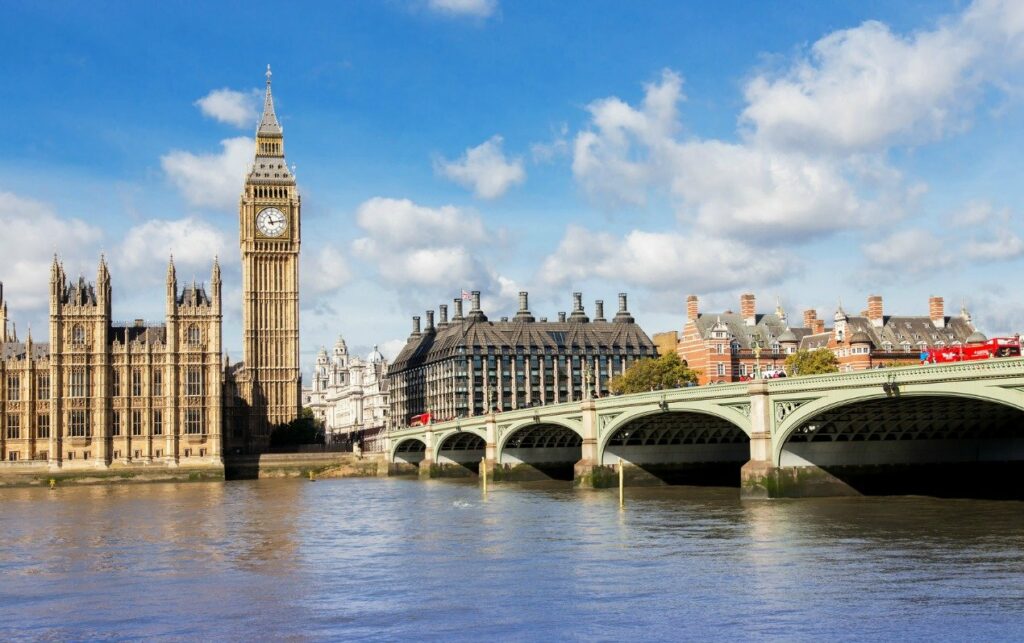The energy crisis that has erupted in the UK and across Europe, with ominous implications for North America including Canada, calls to mind the Hemingway character explaining that he went broke two ways: “Gradually and then suddenly.” And as so often happens when a crisis erupts due to bad habits, people initially struggle without success to understand it, let alone react. It’s especially unhelpful to deny that anything is happening, to insist the credit card still works when merchants uniformly refuse to take it. But what are the alarmists who insisted a Green New Deal would be not only painless but positively profitable to say now? Other than sorry, which apparently isn’t in their vocabulary.
It won’t do to pretend the crisis is not real. Bloomberg News, not exactly a hotbed of virulent denialism, recently reported that “Shortages of natural gas in Europe and Asia are boosting demand for oil, deepening what was already a sizable supply deficit in crude markets, the International Energy Agency said.” And as Vijay Jayaraj wrote, the crisis is hitting India and China as well and threatening blackouts for 2.7 billion of the world’s poorer people. “Asia’s and Europe’s energy crisis is a stern warning to politicians who advocate replacing coal, oil and natural gas with more expensive and intermittent wind and solar — a switch that is a proven recipe for chaos and misery.” And yet pretending the crisis is not happening is the default mode for a great many people.
One prominent Canadian conservative operative and consultant, who has long urged political conservatives to drink the Klimate Koolaid, reacted to the IEA story with a flip Tweet that “It’s a goofy world”. And an outfit called the Institute for Energy Economics and Financial Analysis conceded that the phrase “‘Energy crisis’… evokes nearly-forgotten images of gasoline queues in the 1970s, but increasingly describes the spike in global fossil fuel prices.” But with a dog in the fight, namely its self-identification as “Accelerating the transition to a diverse, sustainable and profitable energy economy”, IEEFA immediately added “A handful of commenters eagerly lay the blame on renewable energy, which they claim has distracted the world’s attention from investments in oil, gas, and coal production that could have calmed markets.” Yes, and they claim it because it is happening. Not according to the IEEFA, however, who continue: “But a sober analysis suggests that today’s energy price crunch has nothing to do with renewables. After all, price spikes aren’t unique to energy.”
If that’s sobriety, you need a good stiff belt of 90-proof “Old Reality” from our cupboard. As might the entire U.S. government, where some 23 agencies just released reports on plans to deal with the looming hypothetical horrors of climate change because the President told them to, instead of writing plans about how to fix the real problem of how to get through a cold winter with expensive fuel.
It’s hard to classify the claim that the reason wind power failed in Europe is… climate change. Is it an excuse or not? According to a piece in the Financial Times, which gives you an idea how much koolaid has been drunk on this subject, “The strength of the wind blowing across northern Europe has fallen by as much as 15 per cent on average in places this year, according to data compiled by Vortex, an independent weather modelling group. The cause of the decrease is uncertain, say scientists, but one possible explanation is a phenomenon called global stilling. This is a decrease in average surface wind speed owing to climate change.” Wait, isn’t climate change supposed to make the wind windier and storms stormier? And note the way uncertainty gets ploughed under and paved over because everything bad or awkward is caused by climate change. But if this wild speculation turns out to be true it’s a particularly lousy the-dog-ate-my-turbine excuse because it ought to have been predicted by the people hyping wind power as the answer demanded by the science. If climate activists knew climate change stills the wind, why have they been pushing so hard for wind turbines? Or is it just another example of climate scientists observing what just happened then rushing out with a model they claim predicted it all along?
This disaster has been a slow-motion train wreck that finally and predictably went off the cliff into the icy river. But the problem for the green crowd is many of them cannot now process what’s before their eyes partly because they’ve spent so long convincing others, and themselves, that it couldn’t happen.
Thus Mark Carney, the thinking woman’s Greta Thunberg or something along those lines, recently said in an interview that “Climate change is an existential threat. We all recognize that, and there’s increasing urgency around it. But the converse is, if you are making investments, coming up with new technologies, changing the way you do business, all in service of reducing and eliminating that threat, you are creating value…. Companies, and those who invest in them and lend to them, and who are part of the solution, will be rewarded. Those who are lagging behind and are still part of the problem will be punished.”
Now it is true that those flogging wind turbines and solar panels have been lavishly rewarded. But the people being punished are ordinary citizens who trusted their leaders not to plunge the world into an energy crisis by shutting down the industries that were “lagging behind” because they were too busy developing and supplying energy systems that actually work. The crisis has been building for a long time, unperceived by those whose economic beliefs are ill-adapted to the real world.
As Rex Murphy wrote in the National Post, it took three decades of slow, steady effort to create this sudden disaster. “The inevitable collision between 30 years of global warming hyper activism — the howling demonization of available, proven energy resources — and reality, is upon us.” Then he offers some sardonic hope, saying “it couldn’t happen at a better time. The 26th gathering of doomsday professionals known as COP26 is close at hand, this time in Glasgow, for another massively over-subscribed conference bent on rejecting the great gifts of nature and providence — oil and gas. COP26 will coincide with the very crisis that the previous 25 conferences, with their wild projections of the Earth collapsing if their prescriptions were not taken up, were in large part responsible for. This time there will be as many as 25,000 delegates travelling great distances by jet during a plague and — this will shock no one — as the BBC reports “COVID rules will be relaxed … (delegates) will not require to be fully vaccinated.” Of course not. Global warmers have virtue-signalling immunity.”
Murphy’s piece is, as usual, worth reading in full, including his observation that we are the first civilization ever to discard gratitude for the hard work that brought us current blessings in favour of “a political and activist force built around a philosophy of ingratitude for the privileges we enjoy, the means by which those privileges were earned, and a furious determination to bring the whole house down.” And he adds a pertinent warning that “No one who attends the grand shindig in Glasgow will experience any hardship, any difficulty, any anxiety, if there are blackouts, unmeetable energy bills, or interruptions in power during the next six months.”
As for the rest of us, “Winter is coming and the grim iceberg is heading towards the great ship.”



“The inevitable collision between 30 years of global warming hyper activism — the howling demonization of available, proven energy resources — and reality, is upon us.”
But look on the bright side - if shooting yourself in the foot ever becomes an Olympic sport, Britain will own the podium.
I believe you will have competition for the GOLD!
I have been noticing for several years that here in the UK it has been getting less windy, now I have had my suspicions confirmed. Thirty or forty years ago we used to get howling gales continuously from October to March. Now these gales seem (fortunately) to have ceased. I can remember visiting my parents at Christmas for seven years in a row when a gale on Christmas Eve would cause a power cut lasting for several days. Fortunately my mother cooked with bottled gas. It is said that global warming will warm the regions away from the equatorial regions most. This will cause less of a temperature gradient going from the equator to the poles. As temperature gradients produce pressure gradients, these too will get less. As pressure gradients cause wind to blow (the steeper the pressure gradient, the stronger the wind), these lowered pressure gradients will produce less wind. Good this climate change isn't it?
It is global cooling, which is now upon us (despite the fallacious claims of the Climate Change Lobby that the world ids "hotting up") that is reducing the amount of turbulence in world weather. The starkly reduced power if the Sun as we pass through several years of a new Solar Minimum, means less warmth reaching the Earth, and it is the warmth , or heat, which drives the volatility in the Earth's atmosphere. This means less powerful depressions and cyclones, and an increased incidence of high pressure blocking such depressions. The result of this will be less wind, and markedly colder winters . C0 2 or the lack if it is irrelevant to changes in world climate, as has been strongly argued by physics professor, emeritus, Happner, of Princeton University.